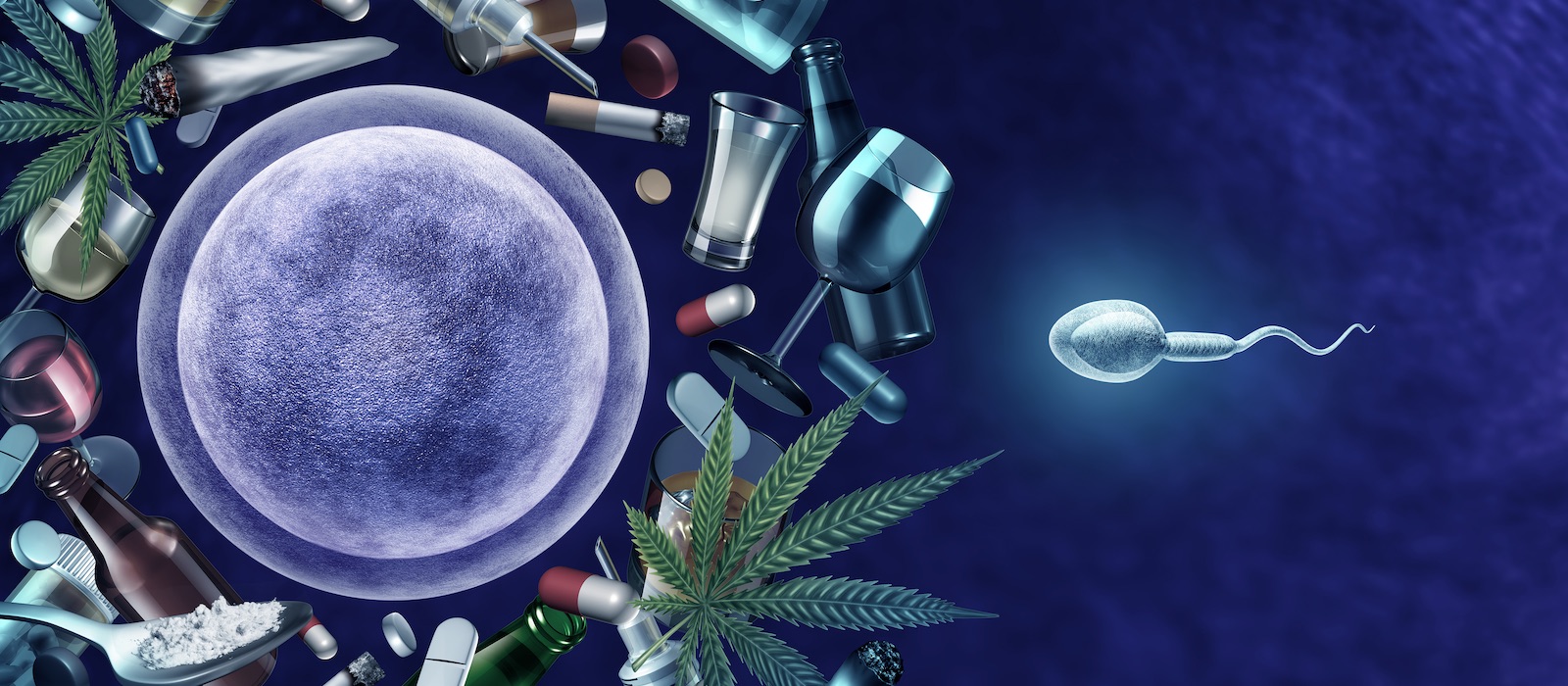- In the last few months, scientific evidence has emerged to suggest cannabis – THC in particular – may alter sperm cells, triggering DNA changes. However, no conclusions have been drawn on how this may affect the embryo.
- Research has also found a link between cannabis use and higher sperm counts and testosterone levels.
- Further good news is that CBD can improve your sex life.

As legal access to medicinal cannabis continues to expand across the globe, more scientists are studying its effect on health. Currently in their sights is the effect of the plant on fertility. As various studies show, men in Western countries are facing a fertility crisis, with sperm counts in males having halved between 1973 and 2011.
Scientists have long debated the issue of whether reduced sperm counts could be a major reason for the fertility crisis, but no firm conclusion has been reached so far. While low sperm counts do have serious implications for male reproductive capacity, there are other aspects that need to be considered too.
Another reason for concern is that low sperm counts and other factors affecting sperm quality could be a sign that we live in a toxic environment. Luckily, the more information we have about the substances we use in our daily lives, the better choices we can make. And of course, this applies also to cannabis.
Can cannabis lead to genetic damage?
A new study carried out by researchers from the Duke University Medical Center, Colorado, suggests cannabis affects sperm quality, triggering DNA changes in user's sperm cells. The researchers compared the sperm of cannabis users to that of non-users and concluded the substance impacts the genes involved in the formation of bodily organs and in regulating growth during development.
According to research, sperm counts in males of reproductive age have halved in just 40 years
The experiments involved male rats and 24 men, half of them having smoked cannabis at least weekly for the previous six months. The researchers found that the higher the concentration of THC – the psychoactive substance in cannabis – the more significant the genetic changes to their sperm were.
The study authors do not yet now whether receiving genes with THC-induced changes can have a negative impact on the developing child, as the effect of THC on the embryo and on the subsequent physical and psychological development of the child still needs to be determined. As with so many other issues in the cannabis world, there are still many unanswered questions that only further, more conclusive studies can address.
Higher sperm and testosterone concentration among users
A study published in January 2019 and carried out by academics from the Harvard T.H. Chan School of Public Health in collaboration with the University of Boston and the Massachusetts General Hospital found a link between cannabis use had higher sperm and testosterone concentrations.
The researchers analysed over 1,100 sperm samples from 662 men with an average age of 36 who were enrolled at fertility clinics. They also took blood samples from half of the participants to test for reproductive hormones.
In order to determine the causes of their reduced fertility, the men were asked to answer questions about their cannabis use. The team found that 11 percent of the participants were current users, while 44 percent had used cannabis at some point in their lives but no longer did. When analysing the samples, the researchers observed that current and past users had 62.7 million sperm per millilitre, compared to 45.5 million in non-users. The investigators also noticed that just 5 percent of users had less than 15 million sperm per millilitre – the threshold for normal concentrations according to the World Health Organisation – whereas the figure rose to 12 percent among non-users. Another finding was that cannabis users tended to have higher blood testosterone levels.

The results contradict the researchers' assumption that cannabis would negatively affect sperm quality. Far from it, the findings suggest that moderate cannabis use can have a positive effect on the endocannabinoid system, which plays a major role in fertility. The positive benefits, however, decrease as consumption increases.
Cannabis users have higher sperm counts and produce more testosterone, a new study has found
Another possible interpretation, the authors say, is that men with higher testosterone levels are more inclined towards risky, less conventional behaviours like smoking cannabis. In that scenario, high testosterone would be a cause rather than a consequence of their cannabis.
Much like in the first study, the researchers warn the results are not conclusive. Because the participants in the study were under treatment at a fertility clinic, the findings may not apply to the general population. Again, only further research can confirm or refute the results.
Better sexual performance
On a somewhat different note, cannabis has been found to help combat the effect of dioxin, a toxin that accumulates with ageing and which has been identified as one of the major causes of erectile dysfunction

Meanwhile, other studies suggest the plant could increase sex drive. This is apparently because CBD regulates the functioning of the sexual inhibition and stimulation systems, reducing stress and anxiety through a number of chemical reactions.
As a result, self-confidence increases and emotional strain fades, allowing couples to express themselves more openly during intercourse, which can make the difference between good and bad quality sex. Also, because the compound involved is CBD, pshychoactivity is left out of the equation, hence undesirable side-effects are rarely observed.
In a nutshell, while research supports the fact that cannabis, notably THC, interferes with sperm, there is no conclusive evidence that the effect is a negative one. What is clear is that CBD helps improve sexual performance. So if you feel you need a hand in the bedroom, try taking some CBD in any of its many forms. Your sex life and your partner will thank you for it.






Comments from our readers
There are no comments yet. Would you like to be the first?
Leave a comment!Did you like this post?
Your opinion about our seeds is very important to us and can help other users a lot (your email address won't be made public).